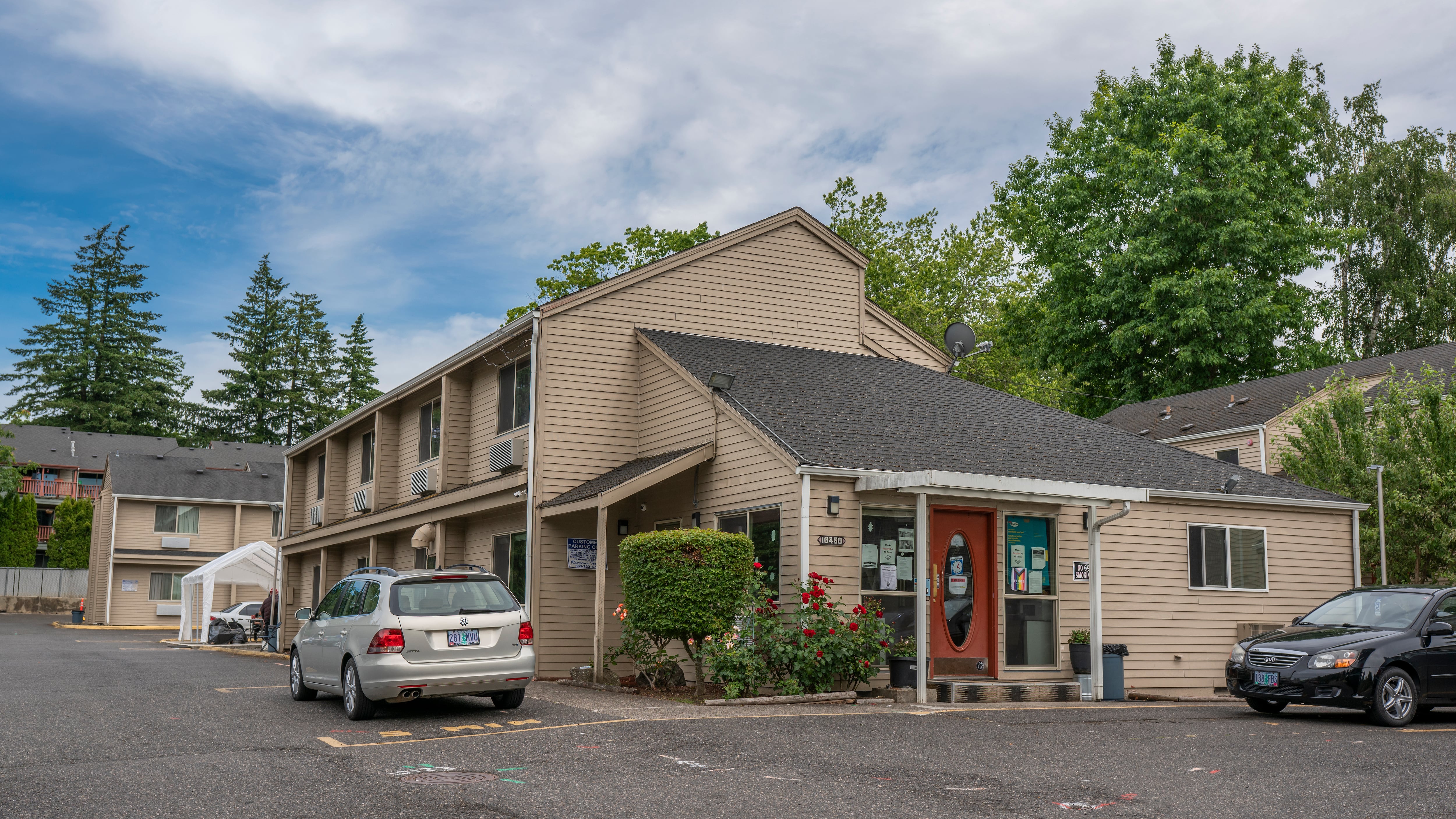For the better part of a month, Portland and Multnomah County officials have argued bitterly over how to spend $52 million in taxpayer money that voters approved last year for housing services.
In short, the argument boils down to whether more of the money should go to alternative shelters or county-funded monthly rent for apartments.
Motels provide an ideal middle ground between the two: They offer the flexibility and group setting of shelters, with the privacy afforded by individual dwellings with doors.
There’s just one problem: Renting motels by the night is expensive.
On top of paying $64 a room per night across six different motels, Multnomah County must pay nonprofit partners to run and staff them. (It owns a seventh motel.) The total bill for its seven motel shelters: $1.4 million a month.
Take the Chestnut Tree Inn, for example, where 58 women stay each night. The county pays $111,000 a month just for the rooms, not including staffing and food costs.
It would cost the county $23,000 to fund one person’s stay at Chestnut Tree Inn for a year.
By contrast, it costs $12,000 a year to house someone in a congregate shelter.
“It’s about $2.4 million a year [for each motel]. They are quite expensive,” says Denis Theriault, spokesman for the Joint Office of Homeless Services. “To operate a congregate shelter, it’s between $1 and $2 million per year. Motels are quite a bit more expensive.”
It’s even more costly to send homeless people to motels, like the Ramada Inn featured in this story, which aren’t rented in blocks but room by room, as needed. “It’s an expensive resource to utilize, especially with not having block rooms or contracts,” says Katherine Moore, a director at Cascadia Behavioral Healthcare, which normally places three to five people in rooms each week for short stays.
Cover Story: One week inside three motels at the edge of homelessness.
There is, however, a cheaper way to turn a motel into a homeless shelter: buy it.
Multnomah County did that once already in the past year, purchasing the Days Inn on Northeast 82nd Avenue for $4.2 million using federal CARES Act money. That raises the question: Why didn’t county officials try to buy all seven motels, at the moment when their fortunes were at a historic low ebb?
County Chair Deborah Kafoury says they did. “We actually sought to negotiate purchase options on all of the motels that we leased last year,” she says, “but not all owners were interested at the time.”
Buying real estate is also complicated, Kafoury says, and the county needed rooms for the homeless fast.
“It was an emergency and we didn’t have the luxury of spending months undertaking due diligence and purchasing properties. People needed safety right then, not three or four months down the road,” she tells WW. “Not all of the motels are necessarily a good purchase investment, and we knew our funds for purchase were limited. We continue to look at potential motel purchases, both the ones we are currently using as shelter, and others.”
The county aims to purchase two more motels by the end of the year. Leasing documents provided by the joint office show the county’s motel leases were set to expire in May, but the county decided to extend them until Dec. 31.
That means four motels will revert to taking paying guests in 2022. Current tenants will be moved back to group shelters if they’re not placed in permanent housing by then.
And when is that? “At some point, after the pandemic,” Theriault says. “We don’t know when that will be, but it’s not imminent.”

